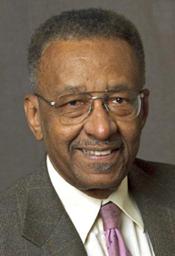Recently by Walter E. Williams: Let’s Blame Speculators
As if more proof were needed about the minimum wage’s devastating effects, yet another study has reached the same conclusion. Last week, two labor economists, Professors William Even (Miami University of Ohio) and David Macpherson (Trinity University), released a study for the Washington, D.C.-based Employment Policies Institute titled “Unequal Harm: Racial Disparities in the Employment Consequences of Minimum Wage Increases.”
During the peak of what has been dubbed the Great Recession, the unemployment rate for young adults (16 to 24 years of age) as a whole rose to above 27 percent. The unemployment rate for black young adults was almost 50 percent, but for young black males, it was 55 percent.
Even and Macpherson say that it would be easy to say this tragedy is an unfortunate byproduct of the recession, but if you said so, you’d be wrong. Their study demonstrates that increases in the minimum wage at both the state and federal level are partially to blame for the crisis in employment for minority young adults.
Their study focuses on 16-to-24-year-old male high school dropouts, understandably a relatively inexperienced group of labor market participants. Since minimum wage laws discriminate against the employment of the least-skilled worker, it shouldn’t be surprising to find 16-to-24-year-old male high school dropouts its primary victims.
Among the white males, the authors find that “each 10 percent increase in a state or federal minimum wage has decreased employment by 2.5 percent; for Hispanic males, the figure is 1.2 percent.
“But among black males in this group, each 10 percent increase in the minimum wage decreased employment by 6.5 percent.”
The authors go on to say, “The effect is similar for hours worked: each 10 percent increase reduces hours worked by 3 percent among white males, 1.7 percent for Hispanic males, and 6.6 percent for black males.”
Even and Macpherson compare the job loss caused by higher minimum wages with that caused by the recession and find between 2007 and 2010, employment for 16-to-24-year-old black males fell by approximately 34,300 as a result of the recession; over the same time period, approximately 26,400 lost their jobs as a result of increases in the minimum wage across the 50 states and at the federal level.
Why do young black males suffer unequal harm from minimum wage increases? Even and Macpherson say that they’re more likely to be employed in low-skilled jobs in eating and drinking establishments. These are businesses with narrow profit margins and are more adversely affected by increases in minimum wage increases. For 16-to-24-year-old men without a high school diploma, 25 percent of whites and 31 percent of blacks work at an eating and drinking establishment. Compounding the discriminatory burden of minimum wages, not discussed by the authors, are the significant educational achievement differences between blacks and whites.
 The best way to sabotage chances for upward mobility of a youngster from a single-parent household, who resides in a violent slum and has attended poor-quality schools is to make it unprofitable for any employer to hire him. The way to accomplish that is to mandate an employer to pay such a person a wage that exceeds his skill level.
The best way to sabotage chances for upward mobility of a youngster from a single-parent household, who resides in a violent slum and has attended poor-quality schools is to make it unprofitable for any employer to hire him. The way to accomplish that is to mandate an employer to pay such a person a wage that exceeds his skill level.
Imagine that a worker’s skill level is such that he can only contribute $5 worth of value per hour to the employer’s output, but the employer must pay him a minimum wage of $7.25 per hour, plus mandated fringes such as Social Security, unemployment compensation and health insurance. To hire such a worker would be a losing economic proposition. If the employer could pay that low-skilled worker the value of his skills, he would at least have a job and a chance to upgrade his skill and earn more in the future.
Minimum wage laws have massive political support, including that of black politicians. That means that many young black males will remain a part of America’s permanent underclass with crime, drugs and prison as their future.
Walter E. Williams is the John M. Olin distinguished professor of economics at George Mason University, and a nationally syndicated columnist. To find out more about Walter E. Williams and read features by other Creators Syndicate columnists and cartoonists, visit the Creators Syndicate web page.




